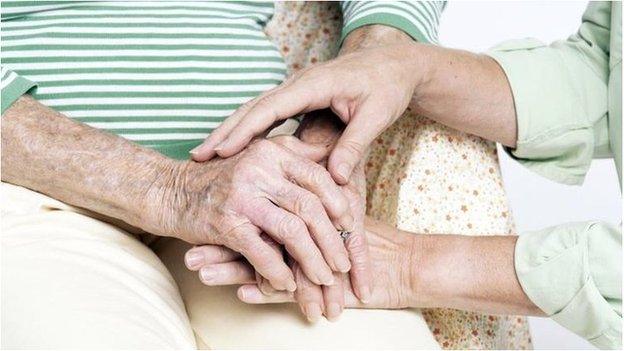Care homes 'could solve NHS bed-blocking'
- Published

The NHS in England should pay care homes to look after patients trapped in hospitals because of the delayed discharges problem, a report suggests.
Every day thousands of elderly patients are unable to leave hospitals despite being medically fit to do so, because care is not available in the community.
But Respublica said if care homes took them in it would be a "win, win".
The think tank said it would free up hospital beds, while bringing in vital investment into the care sector.
Currently there are about 4,300 patients stuck in hospital each day because of problems discharging them - taking up over 4% of all general beds in hospital.
The report, which received funding from care home providers, said if current trends continued the numbers could increase by about 1,000 in the next five years, costing the NHS £3.3bn in total over the period.
It said if this money was spent on care homes they could take on all the patients facing delays, while investing in staff and facilities.
The patients would be cared for temporarily in the care homes until permanent arrangements could be made.
Respublica director Phillip Blond said: "The bed blocking crisis in the NHS is only getting worse - clogging up wards and leaving newly arrived patients on trolleys in hospital corridors."
He added the extra money could also help care homes stay afloat. A report last year by the think tank warned 37,000 beds could be lost in the sector in the coming years because of the squeeze on fees paid by councils.
The idea - known as step-down care - is already being piloted in a number of areas.
And a Department of Health spokesman said attempts to get the health and care sectors to "work better together" would be aided by a new initiative called the Better Care Fund, which was launched last year.
The fund involves a £5.3bn annual pot which is being used to boost shared projects between the two sectors.
- Published19 November 2015

- Published7 October 2015

- Published17 July 2015

- Published28 July 2015
